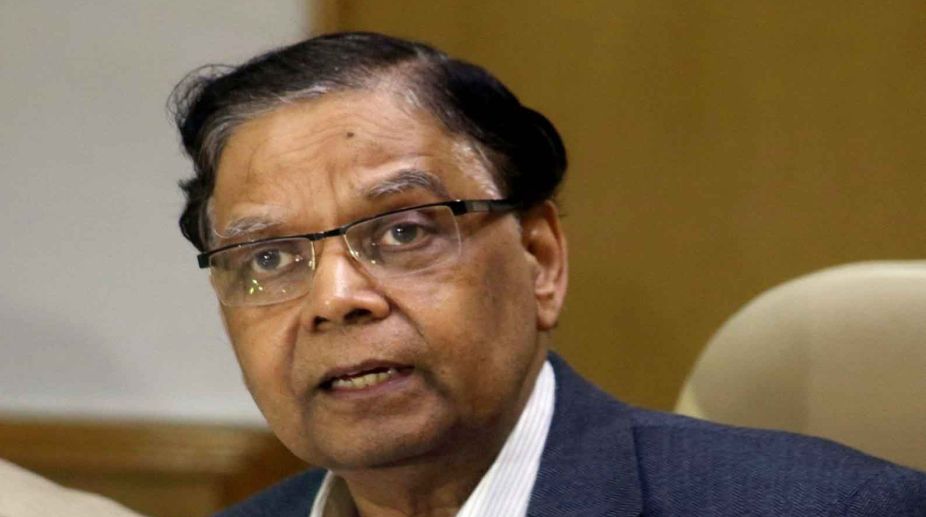CM seeks NITI Aayog’s help in Uttarakhand’s river-linking project
Dhami urged the NITI Aayog to incorporate his proposal in its river-linking project.

NITI Aayog Vice-Chairman Arvind Panagariya. (File Photo: IANS)
Debunking the notion that rigid labour laws are holding back industrial growth in India, the Niti Aayog has said the real reason behind low job creation is the industry’s inability to invest in labour intensive sectors.
“The major impediment in job creation is that our entrepreneurs simply do not invest in labour intensive activities,” Niti Aayog Vice Chairman Arvind Panagariya said at the release here late Thursday of the Aayog’s “Three Year Action Agenda 2017-20”.
Advertisement
“Labour intensive sectors are a no-go for investments,” said Panagariya, who is due to demit office on August 31 to return to his teaching position in the US.
Advertisement
He cited the example of Gujarat with its “most progressive labour laws”, which, however, had witnessed no appreciable change in this area.
Union Labour Secretary M. Sathiyavathy, who was also at the event, asked corporate leaders present on the occasion what other liberalisation in labour laws the Indian industry wanted to invest in job intensive sectors.
“Where labour is a concurrent subject, and states are progressively liberalising labour laws, we cannot understand what more industry is seeking from the Centre in the way of relaxing on labour regulations,” she said.
The three-year action agenda proposed substantial expansion in public spending on education, health, agriculture, rural development, defence, railways and roads by 2019-20.
“The action agenda proposes linking central government expenditures to future priorities. It suggests shifting the composition of expenditures by allocating a larger proportion of additional revenues that become available over time to high-priority sectors,” the government think-tank document said.
The 12th Plan period ended in 2016-17, while the erstwhile Planning Commission was replaced by the Niti Aayog in 2015.
The NITI Aayog document said India had good prospects of reaching the 8 per cent growth target in 2-3 years.
“There are good prospects that we will return to 8 per cent plus growth trajectory in another two to three years, if not sooner,” it said.
Releasing the report, Finance Minister Arun Jaitley said the Action Agenda “has the potential to be a good text book for those in governance”.
Advertisement